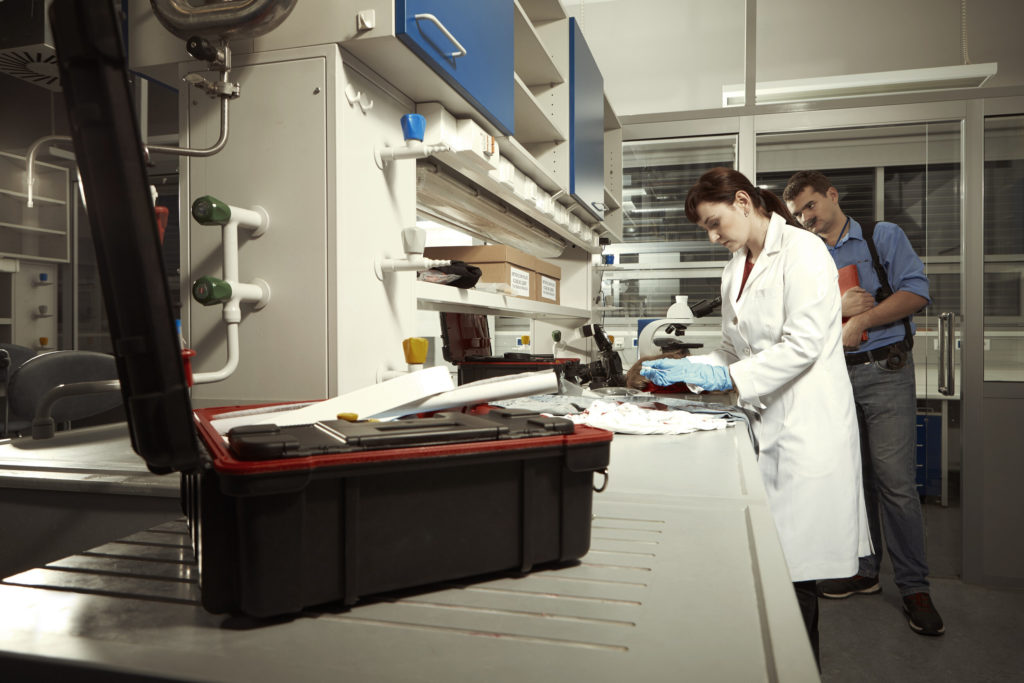The 2018 Farm Bill was great news for hemp farmers across the country when it made the production of hemp for agricultural purposes legal. The 2018 Bill removed hemp from the federal list of controlled substances and defined it as any part of the plant with the botanical name Cannabis Sativa (the same name as cannabis) that contains 0.3% of THC or less, which separates it from cannabis. This has reinvigorated a centuries-old industry that went dark in the ‘30s when anti-cannabis sentiments grew.
Cannabis meanwhile, which is psychoactive, has significantly more THC (generally 5% THC or more), and remains a Schedule I substance which means it is federally illegal even as many states and Washington D.C. have legalized adult-use of the cannabis. Maryland allows for the production of hemp if the farmer is partnered with a university or medical research program.
But according to police The Outlaw Report spoke to as well as a piece in The Baltimore Sun last month, “How Congress passed a farm bill and left Maryland police labs unable to test for marijuana” the 2018 farm bill reclassification of to hemp has made it harder to test for cannabis. That’s because equipment used by police crime labs can only detect the presence of THC and not the percentage and now that hemp, with its 0.3% or less of THC is no longer considered against the law, this renders the rubric used for years to determine if something is cannabis or not, useless.
“The [2018 Farm Bill] was supposed to set policy for agriculture, not evidence,” the Sun’s Tim Prudente wrote. Prudente spoke to people in Baltimore City and Baltimore County crime labs who are frustrated by the change, which they explained, seemingly no one took into account. It was not brought up during any of the hearings regarding hemp, including presumably, police officials now complaining to the press about how hard it is to test for cannabis and prosecute people based on those results.
The Sun piece reads as though it’s from a different era before decriminalization and legalization. For example, the Sun reports that the 2018 Farm Bill’s effects “caused Baltimore Police Commissioner Michael Harrison to tell the City Council this month that he plans to spend a state technology grant of $245,000 on new equipment to test for marijuana.” No one is quoted as questioning why more than a quarter of a million dollars is needed to test cannabis—considered medicine in many states and treated like alcohol or other recreational drugs in other states—at all.
Other states’ crime labs including Ohio and Texas, faced with a similar problem have also decided that the response should be to develop technology that can distinguish cannabis from hemp rather than stop prosecuting cannabis.
Generally, progressive attitudes in law enforcement have framed the prosecution of people who use cannabis as a waste of resources that has little effect on public safety.
“When state legislation stemming from the farm bill took effect in Maryland,” Prudente writes,“Workers had tested samples for federal agents, for local drug distribution cases, even for campus police such as those at Morgan State University and the University of Baltimore.”
In Maryland, cannabis possession of up to 10 grams is decriminalized and the Baltimore City State’s Attorney’s Office announced at the beginning of 2019 that it would no longer prosecute cannabis possession charges no matter the weight. As a result, there has been less of a focus on cannabis in Baltimore City and the city’s top prosecutor Marilyn Mosby has been praised for her forward-thinking approach to cannabis.
One Baltimore City police officer The Outlaw Report spoke to said that over time, as a result of Mosby’s announcement, more officers have been happy to take cannabis off the table as something they have to enforce. Speaking to The Outlaw Report under the condition of anonymity (Baltimore Police are not permitted to talk to the press without permission), he characterized the acceptance by police to not bust people for cannabis as “slow-going” but said that more cops have been coming around to not “wasting their time” arresting people solely for cannabis.
As The Outlaw Report noted, during the first month of the COVID-19 pandemic where the Baltimore City State’s Attorney’s Office announced that police should avoid arrests for non-violent crimes, no one was charged solely for cannabis. Those few that were charged with a cannabis-related crime were also charged for gun possession or other more significant charges.
“It should be legal anyways,” the Baltimore cop said. “No one becomes a cop in 2020 to bust kids at college for pot.”
Photo by Couperfield via Shutterstock

